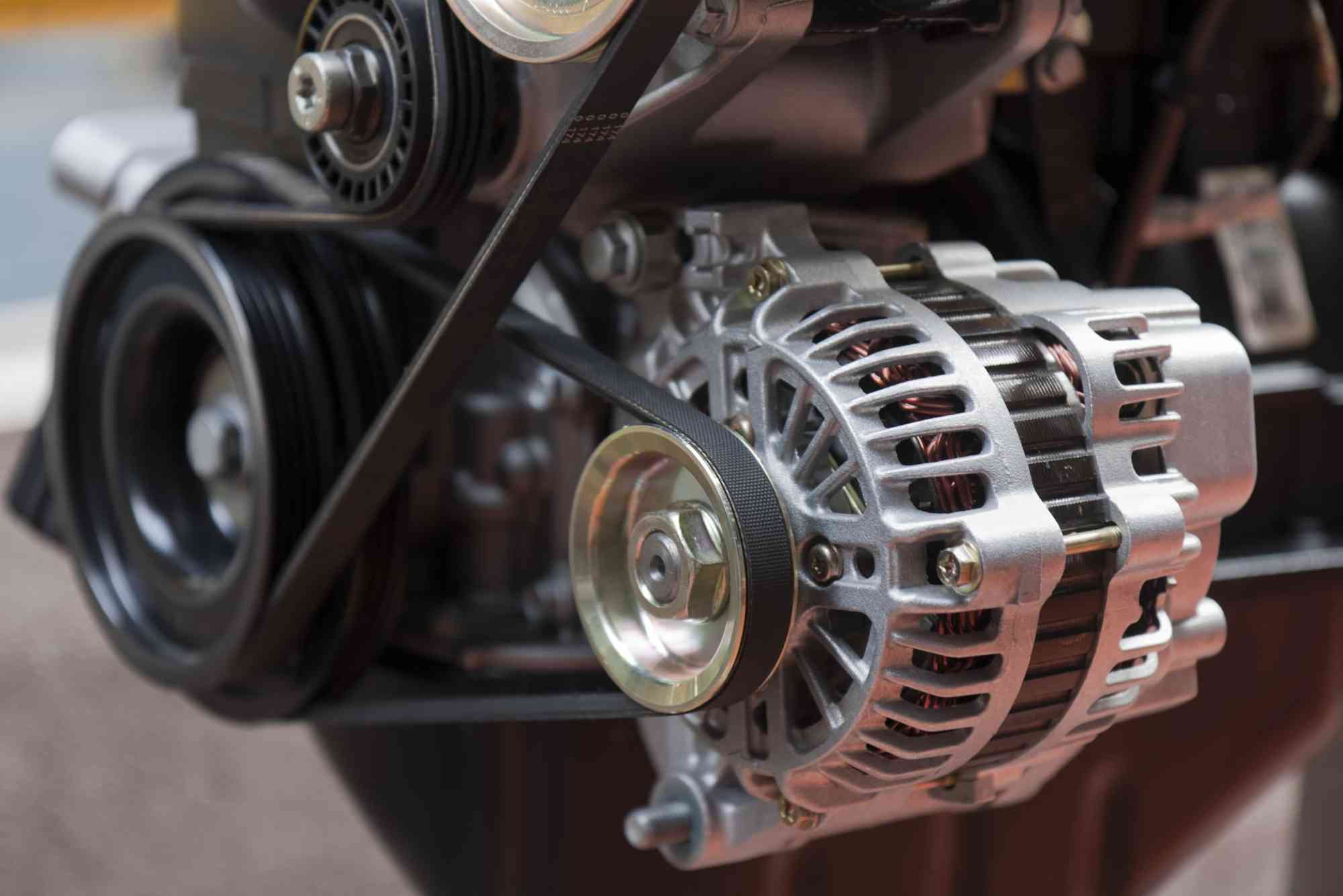Introduction
When your car begins to vibrate or shake, especially while idling or driving at low speeds, it can make you feel uneasy. Many drivers immediately think of spark plugs, engine mounts, or fuel system problems. But here’s a question most people overlook: can a bad alternator cause engine to shake? The short answer is yes—it can, although indirectly. The alternator is not responsible for mechanical balance like engine mounts or rotating components, but when it malfunctions, it disrupts the entire electrical system. This disruption can lead to misfires, weak engine performance, and yes, noticeable shaking. Understanding how the alternator ties into your engine’s smoothness is essential if you want to diagnose the issue correctly and avoid expensive repairs.
How the Alternator Works in Your Car
The alternator’s primary role is to generate electricity and keep the battery charged. Once the engine is running, it powers all electrical components, including the ignition system, fuel injectors, and onboard computers. If the alternator fails, the car relies heavily on the battery, which quickly drains. A weak or dead battery means your engine won’t receive the consistent spark and fuel supply it needs. That’s where shaking comes into play.
Why Electrical Stability Matters
Modern engines depend on precise timing. Spark plugs must fire at the right moment, fuel injectors must deliver the correct amount of fuel, and sensors must communicate effectively with the ECU. The alternator ensures a steady voltage supply for all of this to happen. Without it, the imbalance shows up as rough idling, hesitation, or even misfires that feel like the engine is shaking.
Can a Bad Alternator Cause Engine to Shake?
The main keyword question deserves a direct explanation. Yes, a failing alternator can absolutely cause your engine to shake. However, the shaking is not because the alternator itself vibrates or shakes. Instead, it’s because the alternator’s failure reduces the electrical stability your engine needs. This instability triggers performance problems such as misfires, poor combustion, or stalling. In other words, the alternator indirectly makes your engine shake by starving it of the clean electrical energy it requires.
The Connection Between Alternator Problems and Engine Vibration
When voltage drops, the ignition system may not produce a strong enough spark. Weak sparks lead to incomplete combustion, which causes uneven engine operation. Similarly, fuel injectors rely on stable voltage to spray fuel consistently. If they falter, the engine runs lean or rich, and the imbalance feels like shaking. Finally, electronic sensors like the MAF or crankshaft position sensor can malfunction without steady current, confusing the ECU and leading to rough running.
Symptoms of a Bad Alternator
If you are wondering whether your alternator is behind your engine shaking, pay attention to other signs that usually appear with alternator failure.
Dimming or Flickering Lights
Headlights or dashboard lights that flicker when idling or revving are a classic symptom of alternator issues.
Electrical Failures
Power windows, radio, AC blower, or infotainment system working inconsistently often point to an alternator problem.
Dead or Weak Battery
If you keep jump-starting your car, the alternator might not be charging your battery properly.
Strange Noises
A failing alternator can produce whining or grinding noises due to worn-out bearings.
Engine Stalling or Rough Idle
This is where the shaking comes in. If the alternator cannot power the ignition and fuel systems, the engine runs unevenly, causing vibrations.
Other Reasons Your Engine Might Shake
While alternator failure can cause shaking, it’s not the only reason. Understanding other possibilities helps you diagnose correctly.
Faulty Spark Plugs or Ignition Coils
Bad plugs or coils misfire, leading to uneven engine firing and vibration.
Worn Engine Mounts
If mounts wear out, they can’t absorb engine vibration, making shaking more noticeable.
Fuel Delivery Issues
A clogged fuel filter or failing pump can cause the engine to sputter and vibrate.
Vacuum Leaks
Air entering the system without proper measurement can disrupt the fuel-air ratio, creating rough idle and shakes.
Diagnosing Alternator-Related Shaking
If you suspect your alternator is the culprit, there are a few ways to check.
Voltage Test
Use a multimeter to check battery voltage while the car is running. A healthy alternator should show between 13.5 and 14.7 volts.
Warning Light
Most cars have a dashboard warning light shaped like a battery. If it’s on, your alternator may be faulty.
Professional Inspection
Sometimes, only a mechanic can properly diagnose whether the alternator or another component is responsible.
Can You Drive with a Bad Alternator?
Technically, you can drive for a short distance with a failing alternator, but it’s risky. The longer you drive, the faster your battery drains. Once the battery dies, the car shuts off completely, often leaving you stranded. Driving with a bad alternator also puts stress on your engine and increases the chance of severe shaking and stalling.
How to Fix Alternator-Related Shaking
The solution depends on the severity of the alternator issue.
Alternator Repair or Replacement
If the alternator has minor issues, a repair may suffice. In most cases, though, replacement is the safest option.
Battery Replacement
If your alternator damaged the battery, you may need to replace both to restore stability.
Check Electrical Connections
Loose or corroded wires can mimic alternator failure. Cleaning and tightening connections might resolve the problem.
Preventing Future Issues
Routine maintenance reduces the risk of alternator-related engine shaking.
Regular Inspections
Ask your mechanic to test the alternator and battery during oil changes.
Drive Smart
Avoid running heavy electrical loads like AC, lights, and stereo at the same time when idling.
Replace Parts on Time
Batteries usually last three to five years, while alternators last around seven years or more depending on driving conditions.
FAQs
Can a bad alternator cause misfires?
Yes, a weak alternator can cause low voltage, leading to incomplete combustion and misfires.
Will a car shake if the alternator is going bad?
Yes, engine shaking can happen because the alternator cannot maintain consistent voltage for spark and fuel delivery.
How do I know if it’s the alternator or the battery?
If your battery dies frequently but tests fine, the alternator is likely the problem. A professional voltage test will confirm.
Can a bad alternator damage the engine?
Indirectly, yes. A failing alternator disrupts engine performance, which over time stresses internal components.
How much does it cost to replace an alternator?
On average, alternator replacement costs range from $400 to $800, including parts and labor.
So, can a bad alternator cause engine to shake? Absolutely. While the alternator itself isn’t mechanically shaking the engine, the electrical instability it creates leads to rough running, misfires, and noticeable vibrations. Ignoring these symptoms risks stalling, breakdowns, and costly engine repairs. If your car shakes and you also notice dimming lights or frequent battery issues, the alternator could be the root cause.
The smart move is to get your vehicle inspected by a professional as soon as possible. Addressing alternator issues early not only prevents shaking but also ensures your entire electrical and engine system stays healthy.




